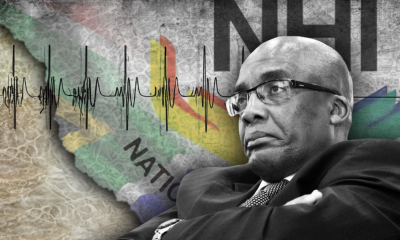411
Big Medical Aid Price Changes Coming for South Africans

South Africans may soon see major changes in medical aid pricing as the government moves to introduce tariff reforms that could lower healthcare costs ahead of the full rollout of the National Health Insurance (NHI).
Minister of Trade, Industry & Competition Parks Tau has gazetted a proposal for public comment on an interim block exemption, which would allow healthcare providers, medical aid schemes, and industry stakeholders to negotiate tariffs collectively.
This move could provide much-needed relief to medical aid members by ensuring better pricing from hospitals, doctors, and pharmaceutical companies.
What Is Changing?
The proposed exemption applies to both:
- Prescribed Minimum Benefits (PMBs) – essential treatments covered by medical schemes.
- Non-PMBs – additional healthcare services not included in minimum benefits.
If approved, the exemption would allow for:
The collective determination of healthcare tariffs
Standardized pricing for diagnoses, procedures, and treatments
Quality controls on medicines, treatment protocols, and medical devices
This would streamline pricing, improve affordability, and reduce price disparities across the private healthcare sector.
Why Is This Needed?
The Competition Commission’s Health Market Inquiry (HMI) has long called for a structured pricing system to tackle inefficiencies in the healthcare sector.
Currently, there is no formal process for tariff determination, leading to:
Fragmented negotiations between medical aids and healthcare providers
Unregulated pricing structures that drive up costs
Limited transparency and price consistency
The Department of Trade, Industry & Competition (DTIC) states that the exemption will ensure fairer pricing while the NHI is still being phased in.
How Long Will the Exemption Last?
If approved, the block exemption will be in place for three years and overseen by the Department of Health in collaboration with the Council for Medical Schemes.
A tariff governing body will be established to regulate and monitor pricing structures.
Concerns Over Government Involvement
Not everyone is convinced that this reform will benefit medical aid members.
The Board of Healthcare Funders (BHF), which represents medical schemes, has raised concerns that the Department of Health is deliberately keeping private healthcare expensive to push the NHI agenda.
The BHF believes that:
Medical schemes should have direct negotiations with healthcare providers
The Competition Commission should manage tariff regulations, not the Department of Health
Government involvement could lead to unnecessary price controls
How to Have Your Say
The public has until 14 March 2025 to submit comments on the proposed reforms.
Email submissions to:
Dr. Ivan Galodikwe – IGalodikwe@thedtic.gov.za
This development marks a potential turning point for private healthcare in South Africa. Whether it results in lower prices or more government control remains to be seen.
Follow Joburg ETC on Facebook, Twitter , TikTok and Instagram
For more News in Johannesburg, visit joburgetc.com



























